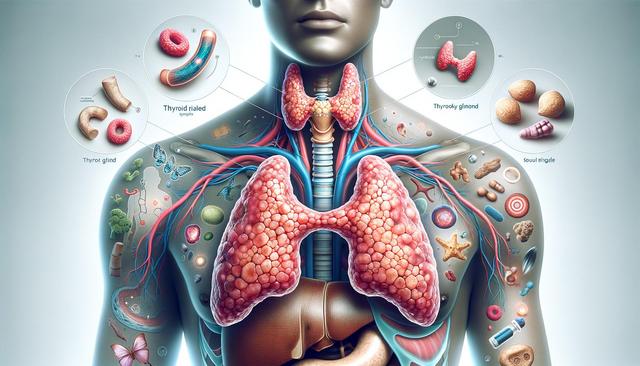What Is the Thyroid and Why It Matters
The thyroid is a small, butterfly-shaped gland located in the front of the neck. It produces hormones that influence nearly every organ in the body, including the heart, brain, liver, and skin. These hormones, primarily thyroxine (T4) and triiodothyronine (T3), help regulate metabolism, energy levels, and body temperature. When the thyroid produces too much or too little hormone, it leads to conditions known as hyperthyroidism and hypothyroidism, respectively. Both conditions can disrupt normal body functions, making it important to recognize early signs and symptoms.
Common Symptoms of Hypothyroidism
Hypothyroidism occurs when the thyroid gland is underactive and doesn’t produce enough hormones. This condition tends to develop slowly and can be mistaken for other health issues. Key symptoms include:
- Fatigue or constant tiredness
- Weight gain despite no changes in diet or activity
- Cold intolerance
- Dry skin and thinning hair
- Depression or low mood
- Constipation
- Slow heart rate
In some cases, hypothyroidism can also cause memory problems, hoarseness, and puffiness in the face. Women may experience irregular menstrual cycles or fertility issues. Because symptoms develop gradually, many people may not realize they have a thyroid issue until the condition becomes more severe.
Recognizing Signs of Hyperthyroidism
Hyperthyroidism is the result of an overactive thyroid that produces too much hormone, speeding up the body’s metabolism. This condition can cause a wide range of symptoms, including:
- Unexplained weight loss
- Rapid or irregular heartbeat
- Anxiety and irritability
- Increased sensitivity to heat
- Excessive sweating
- Tremors in the hands or fingers
- Difficulty sleeping
Other signs may include frequent bowel movements and thinning of the skin. In women, hyperthyroidism can cause lighter or less frequent menstruation. A visible swelling at the base of the neck, known as a goiter, may also be present in some cases.
When to Seek Medical Attention
Because thyroid symptoms often overlap with other health issues, it’s important to consult a healthcare provider if you experience persistent or unexplained changes in your body or mood. Blood tests can determine whether your thyroid hormone levels are within a healthy range. Early diagnosis and treatment can prevent complications and improve quality of life. Common tests include:
- TSH (thyroid-stimulating hormone) test
- Free T4 and T3 levels
- Thyroid antibody tests
If a thyroid disorder is confirmed, treatment may involve hormone replacement therapy, medication to control hormone production, or in some cases, surgery. Lifestyle changes such as a balanced diet and stress management can also support thyroid health.
Additional Considerations and Risk Factors
Several factors can increase the risk of developing thyroid disorders. Women are more likely than men to experience thyroid problems, especially during pregnancy, after childbirth, or during menopause. A family history of thyroid disease also raises the risk. Other contributing factors include:
- Autoimmune diseases such as Hashimoto’s thyroiditis or Graves’ disease
- Iodine deficiency or excess
- Radiation exposure to the neck or upper chest
- Certain medications, including lithium and amiodarone
Maintaining regular checkups and being aware of personal risk factors can help with early detection. Even when symptoms are mild or vague, they should not be ignored, especially if there is a known family history of thyroid dysfunction.


